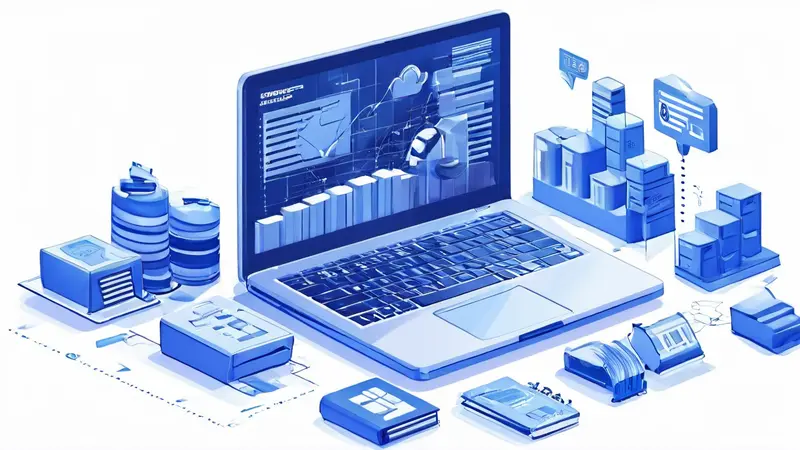
硬件开发的现状
在现今的科技环境中,硬件开发的现状可用几个关键词来概括:快速迭代、多样化、智能化和网联化。随着科技的发展,硬件产品的生命周期变得越来越短,新的产品和技术不断涌现,使得硬件开发的节奏更加快速。同时,硬件产品的种类也在日益增加,满足了消费者多样化的需求。此外,智能化和网联化是当前硬件开发的两个重要趋势,它们不仅改变了产品的形态,也使得硬件开发的工作变得更加复杂和挑战性。
快速迭代是硬件开发的一个重要特点,这不仅仅体现在产品的更新换代上,也体现在硬件开发技术的不断进步上。硬件开发者需要追踪科技的最新动态,掌握最新的开发技术,以便在竞争激烈的市场中保持领先地位。
一、快速迭代
在硬件开发领域,快速迭代已经成为一种常态。对于开发者来说,适应这种节奏是非常重要的。他们需要持续关注新的技术和市场动态,以便在最短的时间内推出新的产品。快速迭代不仅要求开发者有足够的技术实力,还需要有良好的项目管理能力。只有这样,才能在有限的时间内完成产品的开发,并保证产品的质量。
快速迭代的背后,是科技的发展速度越来越快。随着新的技术不断涌现,硬件产品的生命周期变得越来越短。这就要求开发者必须以更快的速度推出新的产品,以满足市场的需求。
二、多样化
现在的硬件产品种类繁多,从智能手机、平板电脑到智能家居、无人驾驶等,各种各样的硬件产品都在为我们的生活提供便利。这种多样化的趋势,使得硬件开发的工作变得更加复杂和丰富。
对于开发者来说,了解和掌握各种硬件产品的开发技术是非常重要的。他们需要了解不同产品的特点和需求,以便开发出满足市场需求的产品。同时,他们还需要有足够的创新能力,以便在众多的硬件产品中脱颖而出。
三、智能化
智能化是当前硬件开发的一个重要趋势。从智能手机、智能电视到智能家居、智能汽车,智能化的硬件产品越来越多。这种趋势不仅改变了硬件产品的形态,也使得硬件开发的工作变得更加复杂和挑战性。
智能化的硬件产品,需要开发者掌握更多的技术,包括人工智能、大数据、云计算等。同时,他们还需要对用户的需求有深入的了解,以便开发出真正满足用户需求的产品。
四、网联化
网联化是另一个重要的趋势。随着物联网的发展,越来越多的硬件产品都可以连接到互联网,实现远程控制和数据分析等功能。这使得硬件产品的功能更加丰富,同时也为硬件开发者提供了更多的可能性。
网联化的硬件产品,不仅需要有稳定的网络连接能力,还需要有强大的数据处理能力。这就要求开发者需要掌握网络技术和数据分析技术。同时,他们还需要考虑到网络安全问题,以保证用户的数据安全。
结论
总的来说,硬件开发的现状是快速迭代、多样化、智能化和网联化。这些趋势不仅为开发者提供了更多的机会,也为他们带来了更大的挑战。只有不断学习和进步,才能在这个快速变化的环境中立足。
相关问答FAQs:
FAQs about the Current State of Hardware Development
Q: What are the latest trends in hardware development?
A: Hardware development is constantly evolving to keep up with technological advancements. Some of the latest trends include the rise of Internet of Things (IoT) devices, the development of artificial intelligence (AI) chips, and the increasing demand for energy-efficient hardware solutions.
Q: How is hardware development being influenced by IoT?
A: The proliferation of IoT devices has greatly impacted hardware development. With the increasing number of connected devices, hardware developers are focusing on creating smaller, more power-efficient chips and sensors that can seamlessly integrate into IoT systems. Additionally, hardware developers are working on improving connectivity options and security features to ensure the smooth functioning of IoT networks.
Q: What role does AI play in hardware development?
A: AI has become a significant driving force in hardware development. The demand for AI-enabled devices has led to the development of specialized hardware, such as AI chips and neural processing units (NPUs). These dedicated hardware components are designed to accelerate AI computations, enabling faster and more efficient AI algorithms and applications.
Q: How important is energy efficiency in hardware development?
A: Energy efficiency is a crucial aspect of modern hardware development. With the growing concern for environmental sustainability, hardware developers are actively working on reducing power consumption in their designs. This includes optimizing circuitry, improving power management techniques, and utilizing energy-efficient materials to create eco-friendly and cost-effective hardware solutions.
Q: What are the challenges faced by hardware developers today?
A: Hardware developers face various challenges in today's fast-paced technological landscape. Some of the common challenges include the need to balance performance and power efficiency, the ever-increasing complexity of designs, managing the costs of development and production, and staying ahead of rapidly evolving market demands.
Q: How does hardware development contribute to technological advancements?
A: Hardware development plays a crucial role in driving technological advancements. By creating innovative and advanced hardware solutions, developers enable the implementation of new technologies and applications. From smartphones and wearable devices to autonomous vehicles and smart homes, hardware development is the foundation that supports and enables these technological advancements.
Q: What opportunities does hardware development present for businesses?
A: Hardware development presents numerous opportunities for businesses to innovate and differentiate themselves in the market. By investing in hardware development, companies can create unique and customized solutions that meet the specific needs of their customers. Furthermore, successful hardware development can lead to increased market share, brand recognition, and revenue growth for businesses.





























